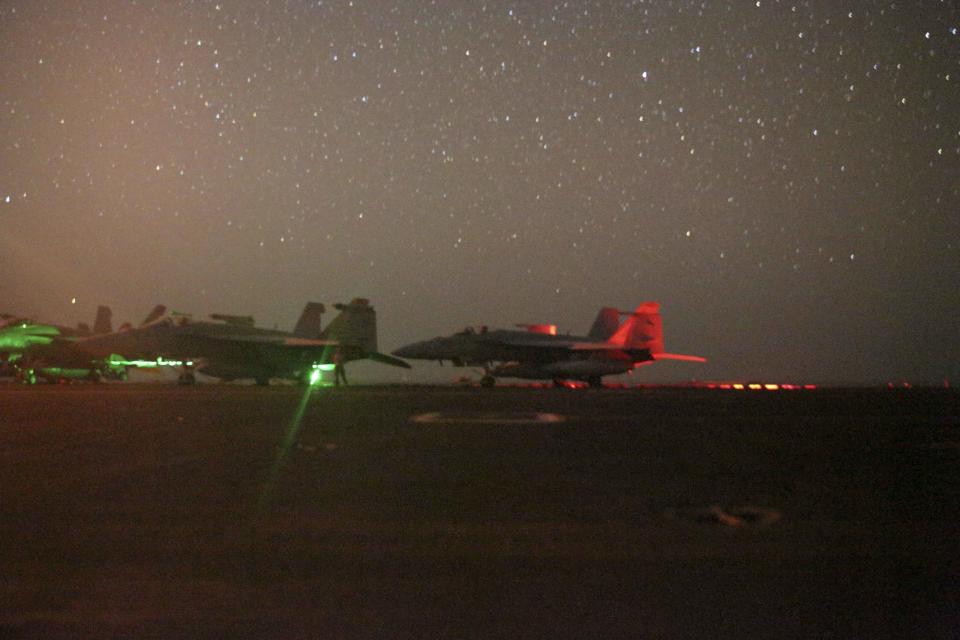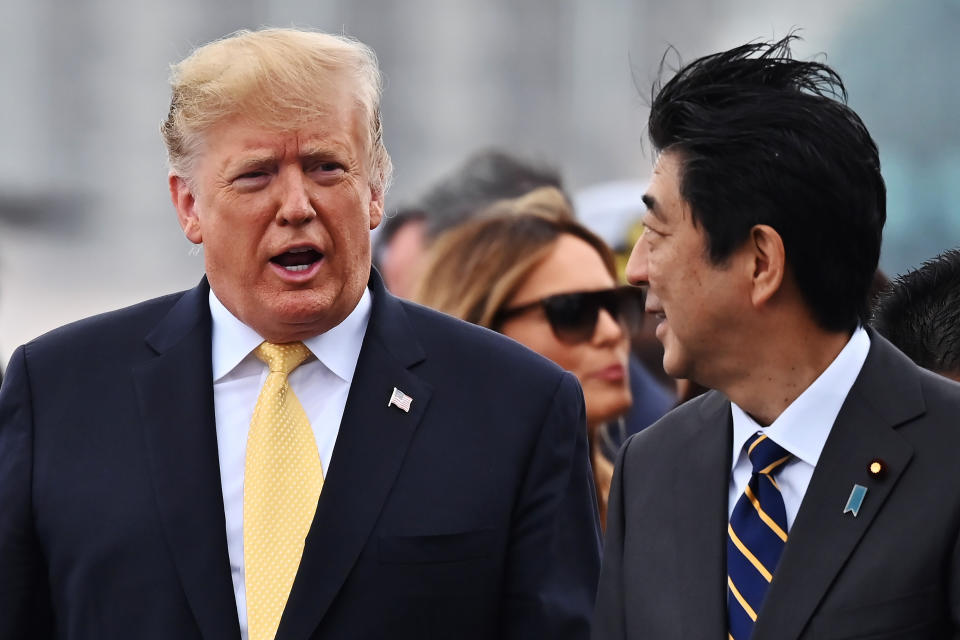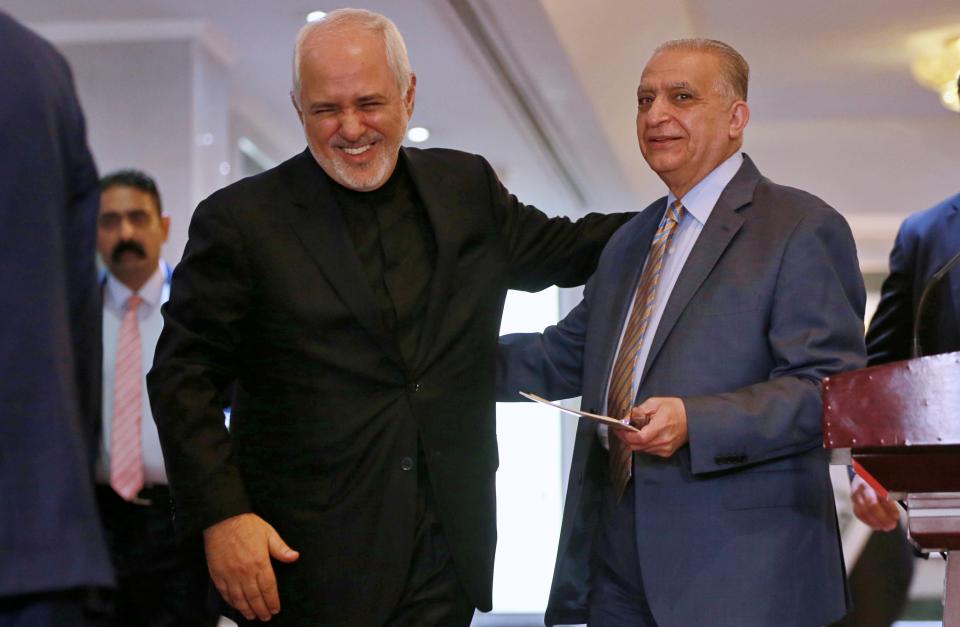The Latest: Iran's Guard says it doesn't fear war with US
DUBAI, United Arab Emirates (AP) — The Latest on developments in the Persian Gulf region and elsewhere in the Mideast amid heightened tensions between the U.S. and Iran (all times local):
1:15 p.m.
Iran's influential Revolutionary Guard says it doesn't fear a possible war with the United State and claims that America hasn't grown in power.
The remarks by the Guard spokesman, Gen. Ramazan Sharif, come as tensions between Washington and Tehran soared recently over America deploying an aircraft carrier and B-52 bombers to the Persian Gulf over a still-unexplained threat it perceives from Tehran.
The U.S. also plans to send 900 additional troops to the 600 already in the Mideast and extending their stay.
Sharif told reporters on Tuesday that the paramilitary force doesn't "support engaging in any war" while at the same time it doesn't "fear the occurrence of a war."
Gen Sharif says "the enemy is not more powerful than before."
___
11:30 a.m.
A Dubai-based, government-aligned newspaper has published a rare front-page editorial criticizing Iran's foreign minister amid tensions between Tehran and Washington.
The Gulf News editorial on Tuesday, headlined "No thank you, Mr. Zarif," criticized the Iranian diplomat for his recent offer of forming a nonaggression pact with Gulf Arab nations.
The newspaper said Gulf Arab nations are not buying Zarif's "nice neighbor routine."
The paper says Iran "continues to call for the overthrow of Arab governments, sends its agents to spy and sabotage, aiming at spreading chaos in Gulf countries, such as Bahrain and Kuwait and more recently off Fujairah and in Saudi Arabia."
The newspaper added: "Nobody wants war in this region. But Iran should instead focus on its daunting internal problems which cannot be resolved by constantly fomenting aggression against our countries."
___
9 a.m.
Iran's foreign minister appears unimpressed with Japan's offer to mediate in a crisis between Tehran and Washington, and says President Donald Trump should make his intentions clear about any talks with Iran through actions, not words.
Mohammad Javad Zarif said in a late Monday tweet: "Actions_not words_will show whether or not that's
Trump said Monday in Japan that he'd back Prime Minister Shinzo Abe's efforts to open a communication with Iran. Trump said: "I do believe Iran would like to talk and if they'd like to talk, we'll talk also."
Iran has said it has no interest in negotiations with Washington following Trump's pullout from the nuclear deal and re-imposing sanctions on Iran.
Zarif in his tweet also blamed Trump's economic pressure on Iran for the regional tensions.


